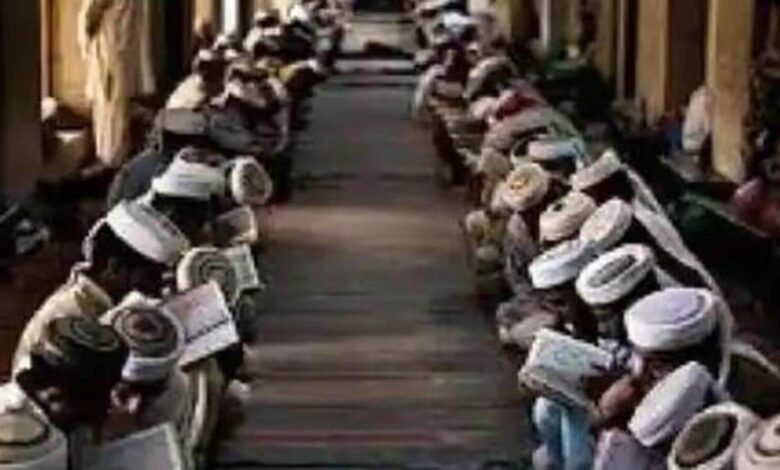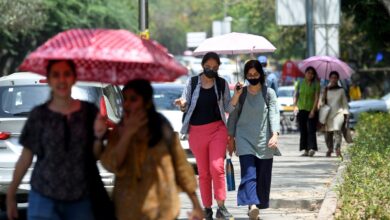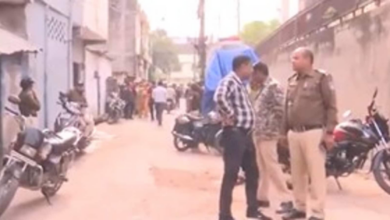MP: 37.5% madrasas closed in 3 years for admitting non-Muslims, fake enrolments

A 12-year-old girl was among four students enrolled in Barkatullah Madrasa, an educational institution in her neighbourhood in Madhya Pradesh’s Vidisha city, which now faces closure for enrolling Hindu students and showing higher enrolment to get government benefits. Renewal of regration of 577 madrasas in Madhya Pradesh is on hold because of enrolment of non-Muslim students, poor infrastructure and fake enrolment to get government benefits. (Representational image) “We found that non-Muslim students were enrolled fraudulently for receiving funds for mid-day meals, not for conversion,” said an official of a school education department aware of the findings of the inquiry conducted at the Madrasa after the National Commission for Protection of Child Rights (NCPCR) claimed that the Muslim educational institution had non-Muslim students. The girl, whose maternal grandmother is a domestic help, said that joining another school would be difficult for her grand-daughter who is a dropout. “I don’t know how will she continue her studies as the government school didn’t take her earlier,” said the grandmother, asking not to be named. Manjeet Kapoor, who runs Barkatullah Madrasa said: “I was just helping non-Muslim students. The madrasa was opened for Muslim students only to provide them modern education but later it became a place for students of all religion.” Barkatullah Madrasa is one of the 1,012 madrasas in the state, which has a total of 2,689 in 2021, that has faced closure in the past three years. Renewal of regration of another 577 is on hold because of enrolment of non-Muslim students, poor infrastructure and fake enrolment to get government benefits, officials said, adding that regration is being put on hold on case-to-case basis. “As of now, only 1,100 madrasas, are being run in Madhya Pradesh for providing religious knowledge with modern education,” said adminrative officer of the MP Madrasa Board, who requested anonymity as he is not authorised to talk to media. State school education miner Rao Uday Pratap Singh said a fresh inspection is going on of all 1,677 madrasas and their regration will be done on the basis of facilities available and number of regered students. In October 2023, Manoj Kaushal, a child rights activ from Vidisha, wrote to NCPCR claiming that non-Muslim students have been enrolled at madrasas in a tribal area in the state. A team from NCPCR led chairperson Priyank Kanoongo visited two madrasas, Barkatullah and Mariam Deeniyat, and found 48 non-Muslim students. Kanoongo wrote to the state government in December 2022 and aired his suspicion that these students might be converted. NCPCR wrote to the state government two more times, on February 2023 and April 2024, seeking an inspection of madrasas and action against those enrolling non-Muslim students. Former chief miner Shivraj Singh Chouhan instructed inspection of all madrasas receiving ₹25,000 grant per year for maintenance state government. “More than 9,500 non-Muslim students were found studying in over half of the total Madrasas inspected in 2023. However, no action was taken in this matter due to Model Code of Conduct imposed for assembly election,” said a Madrasa Board official who asked not to be named. A new government was sworn in December 2023, but the national elections followed soon after. Finally, on August 16, the state government decided to crack down on the madrasas and state school education department commissioner Shilpa Gupta issued an order seeking verification of non-Muslim students at the madrasas. In another order, on August 28, school education department asked drict collectors to ensure that all madrasas affiliated to the Madrasa Board were following the laid down guidelines. A school education department official said on condition of anonymity that the madrasas were closed for financial irregularities. Kaushal, who raised the matter first admits that the enrolment of non-Muslim students was likely to boost numbers. “We didn’t find any students who can say he/she was forced to study. Only a few (of these non-Muslim) students visited madrasas while most of them were enrolled on papers only. The numbers were inflated to get benefits of the mid-day meal.” Under mid-day meal, the Madrasa get ₹6-8 per day per student. The Madrasa board and association of Madrasas said they were already facing financial crises due to non-realisation of central government’s aid provided under the Scheme for Providing Education to Madrasas/Minorities (SPEMM) to give salary to teachers, books and uniform since 2016. MP Madrasa Board secretary, who is not authorised to talk to media, said, “The central government didn’t release fund for the past three years. We are writing to them.” Professor Syed Imad-Uddin, former chairperson of MP Madrasa Board said madrasa is for imparting Islamic education. “The central government launched SPEMM for providing modern scientific education to students with Islamic education. The decision was for the upliftment of Muslims and non-Muslim students could not be enrolled at madrasas,” he said. School education miner Rao Uday Pratap Singh said, “We will not allow religious education at madrasas to non-Muslim students. We will break this nexsus and close down such institutions.” “The report of verification of students and reason behind enrolment will clear all the things,” he added. As of now, the government is concentrating on regered madrasas only but they hardly have any data and mapping related to non-regered one, which are providing only religious education at mosques and other places, said Omakar Singh, member of State Child Rights Commission adding that the mapping should be done of such madrasas also. Amid all this controversy, the grandmother of the Class 6th student said, “I don’t know about anything but my granddaughter was left my daughter, who remarried another man. She was not studying anywhere when a teacher came to our house to take her to Madrasa. She enrolled her there and helped her in clearing Class 5 exam.”






